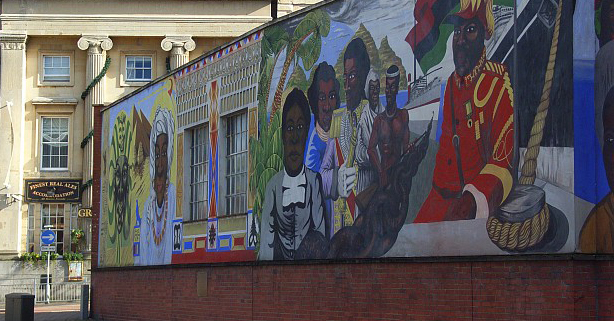Black History Month 2025

Black History Month is an important opportunity to explore the histories of people who have often been excluded from popular narratives. While the idea of one month on Black history might appear tokenistic or simplistic, it does not have to mean sticking to already well-known characters or limited themes. Therefore, this year we have chosen to break with some of the regular focuses and instead we are using Black History Month to demonstrate the longevity of Black British history by highlighting the growth and interactions of Black settlement in Britain during the eighteenth century.
Many of these interactions were not driven by choice but were due to the transatlantic slave trade, of which Britian was a leading power in the forced enslavement of African peoples, primarily in transporting captured Africans to British colonies in the Americas for huge profit.
However, to view these interactions solely through the large lens of slavery is to ignore the complex personal relationships that developed in Britain during that century. Black Africans began to settle in the UK, sometimes through slavery and at other times through choice and to take up a number of occupations. That presence took on a mixture of domestic regularity for some, while for others it was a position from which they campaigned against slavery and for greater equality as part of the wider political movements of the time. Key Black social commentators such as Ignatius Sancho became household names, but the majority of people of colour living in the UK were invisible to those in power if not to those immediately around them.
A key theme of the eighteenth century is the development of demands for power, equality and rights amongst the growing working and middling classes. In recent years more attention has been paid to public sources to determine the extent and everyday reality of Black people living in eighteenth century Britain and that research provides a valuable insight into the long term presence and direct contributions of Black people into British society at that time. All of which serve as a reminder, that Black history is British history, when the latter is seen through the breadth of its people rather than through a narrow interpretation of 'authority and key events'.
As part of the Historical Association’s collaboration with academics to create our new film series on Power and Freedom in Britain, Dr Montaz Marche and Dr Ryan Hanley discuss their research and interpretations of Black British life in the eighteenth century.
Selected resources
Primary
-
‘Nothing was easy’: viewing war, empire and racism through the eyes of a local Windrush migrant (Primary History article)
-
Teaching black British history through local archives (Primary History article)
- Film: Black British History – 1714 to 1785 (open access)
-
For more, see our page of Resources for Diversity in primary history, particularly the section on Race and ethnicity.
Secondary
- Shaping what matters: Year 9 decide why we should care about the Windrush scandal (Teaching History article)
- What can Rainbow City tell us about race relations in 1960s Britain? – open access
- How can we find out about the experiences of Black Britons in the 1960s? – open access
- Britain and Transatlantic Slavery: Teacher Fellowship Programme outcome resources – open access
- Film: Black British History – 1714 to 1785 (open access)
- For more, see our page of Diversity resources for Secondary history, particularly the section on Race and ethnicity.
General interest
- Virtual Branch lecture on 13 October with Dr Sudhir Hazareesingh on Daring to Be Free: Rebellion and Resistance of the Enslaved in the Atlantic World – open access
- Film: Black British History – 1714 to 1785 (open access)
- Recorded webinar: The post-emancipation Caribbean and the meanings of freedom
- State of the Field: The History of African Political Thought (History article, free to all members - see below*)
- Lecture recording: Writing Black histories, telling Black stories
- Medlicott Lecture 2022 by David Olusoga
* To access History journal content:
1. Sign in to the HA website (top right of any page)
2. Click this link to allow access to History content on the Wiley site.
3. Follow the link to the article

